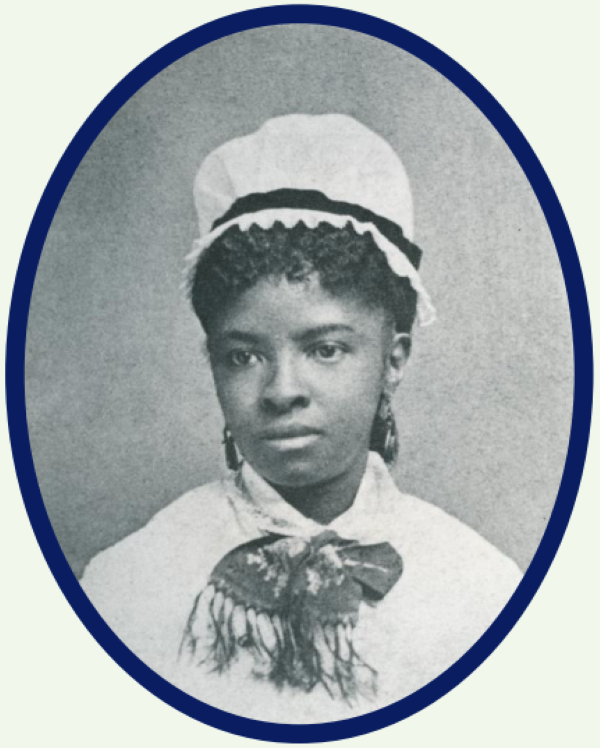Mary Eliza Mahoney, RN
Nurse
Nursing, women's rights activist, equality advocate, pioneer
Mary Eliza Mahoney, RN Heading link

The Department of Medicine Inclusion Council honors and celebrates the life and accomplishments of Mary Eliza Mahoney, RN, (May 7, 1845 – January 4, 1926). Mahoney may be best known as the first African American woman professionally licensed nurse, making her the first African American woman to graduate from an American school of nursing in 1879. Her motto was “Work more and better the coming year than the previous year.”
The journey to nursing for Mary Eliza Mahoney, RN, started from the ground up. She was born in Dorchester, Massachusetts in 1845. Her parents were freed slaves that traveled from North Carolina. At the age of ten, she attended one of the first integrated schools in Boston, the Phillips School, studying morality and humanity values along with history and math. This may have sparked her early interest in nursing as well as seeing the emergence of nurses during the American Civil War.
As a teenager, she began working at the New England Hospital for Women and Children (now the Dimock Community Health Center), which had an all-women staff of doctors. For fifteen years, she worked as a janitor, maid, cook, washerwoman and occasionally as a nurse’s aide, often for 16 hours a day. Operating one of the first nursing schools in the United States, Mahoney was allowed to enter their rigorous program in 1878 at the age of 33. Of the 42 students that entered the program, Mahoney was one of only four who graduated.
Upon graduation, she became a private duty nurse, primarily for white wealthy families for mothers and their newborn children. At a time when Black nurses had limited practice opportunities and were often seen as domestic servants rather than nursing professionals, her efficiency in nursing and professionalism helped to raise the status and standards for all nurses.
Mary Eliza Mahoney, RN Heading link

In 1896, Mahoney become one of the original members of the predominantly white Nurses Associated Alumnae of the United States and Canada (NAAUSC) which changed its name in 1911 to the American Nurses Association (ANA). Mahoney worked to abolish discrimination in the nursing field and wanted to increase professional standards and develop leaders among Black nurses, which was part of the work of the National Association of Colored Graduate Nurses (NACGN) which Mahoney helped to co-found in 1908.
At NACGN’s first convention, she was elected national chaplain. The number of African American nurses doubled from 1910 to 1930, due primarily to her years of working to recruit minority nurses to join the organization.
Before retirement, Mahoney served as director of the Howard Colored Orphan Asylum for Black children in Kings Park, Long Island, New York from 1911-1912. After 40 years of nursing, Mahoney was still active in advancing women’s equality and civil rights. In 1920, after women’s suffrage was achieved in the U.S., Mahoney was among the first women in Boston to register to vote.
In recognition of her outstanding example to nurses of all races, the NACGN established the Mary Mahoney Award in 1936. When NACGN merged with the American Nurses Association in 1951, the award was continued and is still given biennially by the ANA in recognition of significant contributions in advancing equal opportunities in nursing and to integration within the nursing profession.
Opened in 1973, the Mary Mahoney Memorial Health Center in Oklahoma City is named in her honor. Mahoney was inducted into the American Nurses Association Hall of Fame in 1976 and was inducted into the National Women’s Hall of Fame in 1993.